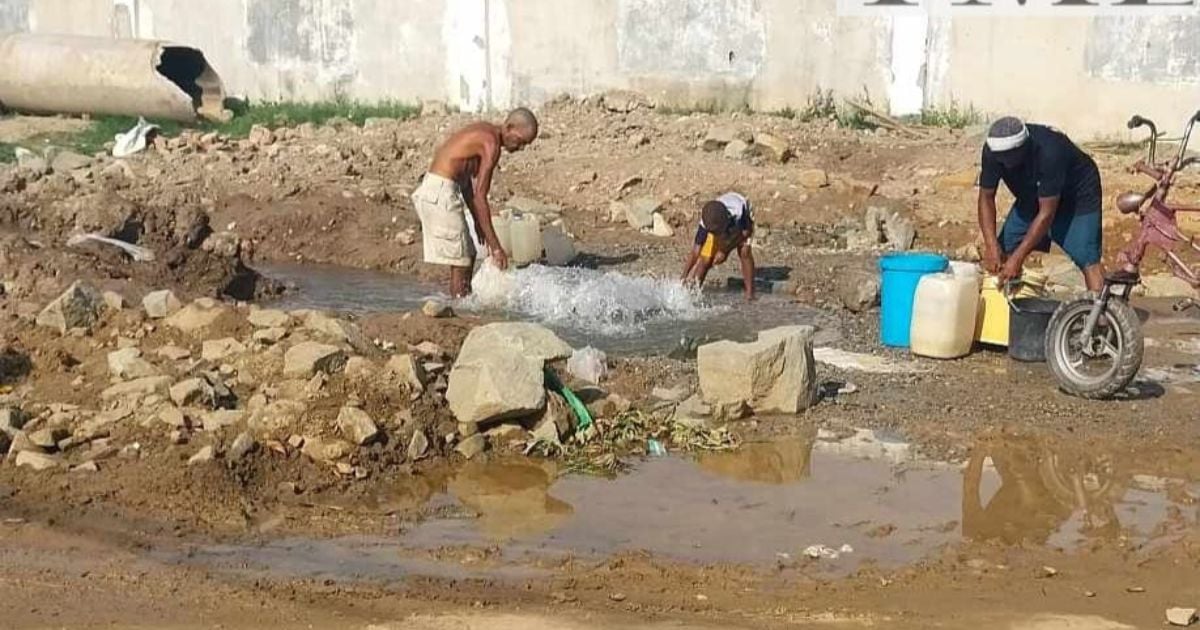
While the Oropouche virus continues to plague the residents of Santiago de Cuba and appears to have claimed at least one victim, another threat further complicates the already critical epidemiological situation in the eastern region, as it has been confirmed that two dengue serotypes are circulating, which could lead to the emergence of severe forms of the disease.
The Provincial Department of Surveillance and Anti-Vector Combat issued an alert on Friday due to the presence of two variants of the virus causing dengue, at a time when "the territory is experiencing a high infestation of the transmitting agent," mainly in the main municipality of Palma Soriano, Contramaestre, Mella, and San Luis, where more cases of arbovirosis are reported.
Alfredo Cintra Guerra, in charge of that organization, assured the official newspaper Sierra Maestra "that the circulation of two serotypes of the dengue virus has been confirmed", and warned that, as a result, there is a "high probability of severe forms of the disease occurring if preventative measures are not applied promptly".
According to the official, "actions are being carried out in communities aimed at eliminating micro-dumps, leaks, obstructions, and other conditions that favor the proliferation of mosquitoes."
Despite the seriousness of the situation, which worsens the already difficult healthcare landscape in Santiago de Cuba, hit since the beginning of May by the Oropouche fever, the newspaper note admits that "current economic limitations prevent large-scale interventions."
Although "Public Health continues to carry out adulticidal treatment (fumigation) and focal treatment in the homes of cases of nonspecific febrile syndrome and in nearby buildings, as well as in the blocks with dengue transmission," the report states, "this is not enough to guarantee the containment of arboviruses."
The newspaper urges the population to "take action for collective health" from neighborhoods, homes, and workplaces, but does not explain what resources people have to do so, if the State itself relies on "economic limitations" to justify its lack of effectiveness in stopping both epidemic outbreaks.
According to the director of Surveillance and Anti-Vector Control, "the underground tank continues to be the most frequent deposit in the detection of breeding sites" and warned about the increase in artificial breeding grounds in households, for example, empty bottles, cans, and uncovered tires that fill with water and where the Aedes mosquito reproduces.
The executive added that the sanitation of yards and other spaces in the residential sector is deficient.
The note reminded that "severe dengue can be deadly" and that "children, pregnant women, individuals with chronic illnesses, and the elderly are the most at risk."
He warned that "every precaution is necessary to defend the integrity and well-being of our families," and listed actions to prevent the spread of the virus: remove objects that could become breeding grounds, clear weedy areas, dig trenches to prevent rainwater from pooling in puddles, avoid dumping waste in public areas, and seek medical attention if a fever develops.
Sierra Maestra stated that these measures would also prevent Oropouche fever and avoid "two epidemics overshadowing the joy and entertainment that summer usually brings."
Meanwhile, the government continues without publishing figures of those diagnosed with the Oropouche virus, which has already spread to Cienfuegos and Mayabeque, but could be present in other Cuban provinces.
The regime authorities also maintain complete silence regarding the deaths of people due to this virus. Although the day before, it was known through unofficial reports about the death of the young man from Santiago, Richard Daniel Nieves Chaveco, 22 years old, who was hospitalized with symptoms of Oropouche.
The university student, who lived in the II Frente municipality, passed away three days after being admitted to Ambrosio Grillo Hospital in Santiago de Cuba municipality, showing symptoms of the virus.
What is your opinion?
COMMENTFiled under: